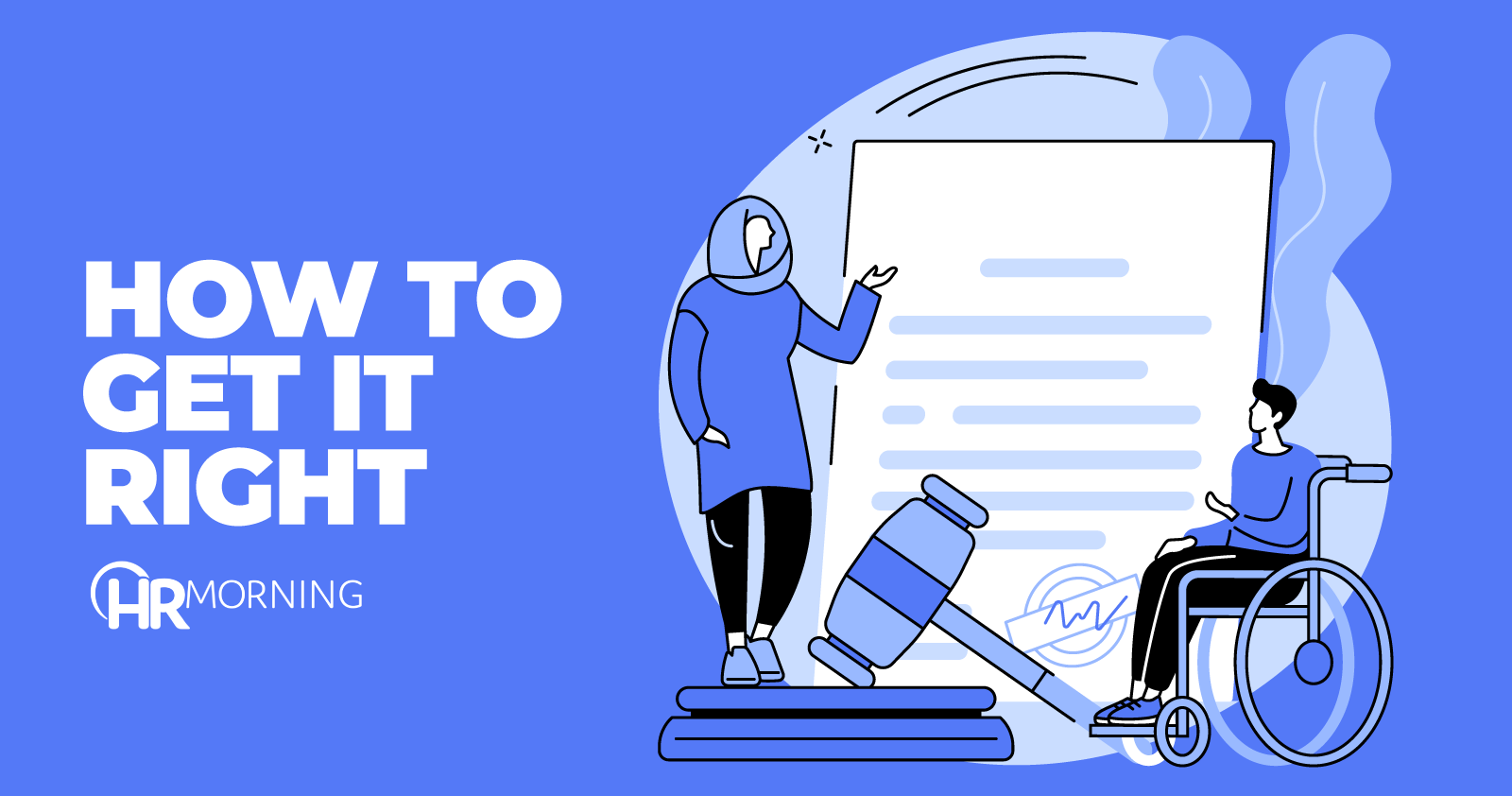The duty of employers to accommodate disability under the Americans with Disabilities Act (ADA) doesn’t begin with a new worker’s first day on the job. Instead, it also fully applies during the hiring process.
What steps should employers take to make that process as smooth as possible while staying on the right side of the law? A new resource from the Job Accommodation Network (JAN), a federally funded leading provider of guidance on job accommodation and disability employment issues, is a valuable source of guidance.
Here’s a breakdown of JAN’s new guidance on the subject.
Fundamental concept review: The interactive process
A basic and overriding principle relating to the provision of job accommodations for applicants and employees with disabilities is the concept of interactive process.
At its core, the concept contemplates that applicants/employees and employers work cooperatively with one another to find job accommodation that will enable the performance of essential job functions without placing an undue burden – known in the law as “undue hardship” – on the employer.
Employers should be ready, willing, and able to enter into a good-faith discussion to help find an effective accommodation whenever a disability-related limitation interferes with the ability to apply for – or perform – the job at hand.
Breaking down the interactive process
Before an offer of employment is made, employers covered by the ADA generally must be very careful not to make disability-related inquiries. But that rule does not go so far as to prevent employers from asking job applicants whether they will need a reasonable accommodation to effectively participate in the job application process, JAN’s new guidance says.
This is not a new rule or a change from prior policy. In fact, the Equal Employment Opportunity Commission has specifically said in prior guidance that employers can ask job applicants whether a reasonable accommodation will be needed in connection with the application, notwithstanding the general prohibition on pre-employment, pre-offer medical inquiries.
And while the employer may ask whether an accommodation might be needed, it is up to the applicant to officially kick off the interactive process by asking for an accommodation, JAN’s guidance advises.
It’s important for employers to remember that the applicant does not need to use any “magic words” to begin the process; instead, it is enough to communicate effectively to the employer, in one way or another, that an adjustment to the usual hiring process is needed for them.
Accommodate disability: Triggering the process
The new JAN guidance gives specific examples of applicant statements that can trigger the process. They include:
- “I am neurodiverse and need interview questions in advance.”
- “Because of my dyslexia and reading challenges, I need extended time to take the pre-interview online assessment.”
- “It’s painful for me to walk very far; can all the interviews take place in one location?”
While those questions indicate the presence of a disability-related limitation fairly clearly, others fall into more of a gray area. Those include ones like:
- “I find it difficult to communicate verbally; may I answer the interview questions in writing?”
- “I am struggling to navigate your career site; can someone assist me?”
- “I need more time to complete the pre-interview online assessment; is there a way to extend the time?”
For questions like these, the guidance says employers should clarify with the applicant why the request is being made.
To streamline the request process, JAN says employers should:
- Reduce the need for accommodations by building accessibility into the application process, such as by holding interviews in accessible locations and making online applications accessible to screen readers.
- Make it easy to request accommodations, such as by providing an accommodation statement and providing multiple contact methods to make requests.
- Be ready for last-minute requests, such as by training interviewers and considering potential accommodations ahead of time.
Accommodation requested: Now what?
Once a request is made, an employer can ask for reasonable medical documentation supporting it – as long as that information is needed to show that there is in fact a disability that requires accommodation.
JAN suggests that employers consider foregoing medical documentation at the hiring stage or getting medical information informally.
For example, an employer can simply allow an applicant to bring a service animal to an interview without seeking medical documentation supporting the request.
Ideally, the applicant and employer work together to uncover at least one accommodation that will effectively accommodate the disability-related limitation. Employers are not obligated to provide the applicant’s preferred accommodation when another effective accommodation is available, but JAN suggests doing so when possible.
JAN also advises employers to keep all medical information confidential while simultaneously providing relevant information to managers and supervisors as needed.
Finally, there is an aspect of job accommodation that may be overlooked: Monitoring a provided accommodation to make sure it remains effective over time. Employers should have a process to make adjustments when needed, the guidance says.
See the full guidance here.


